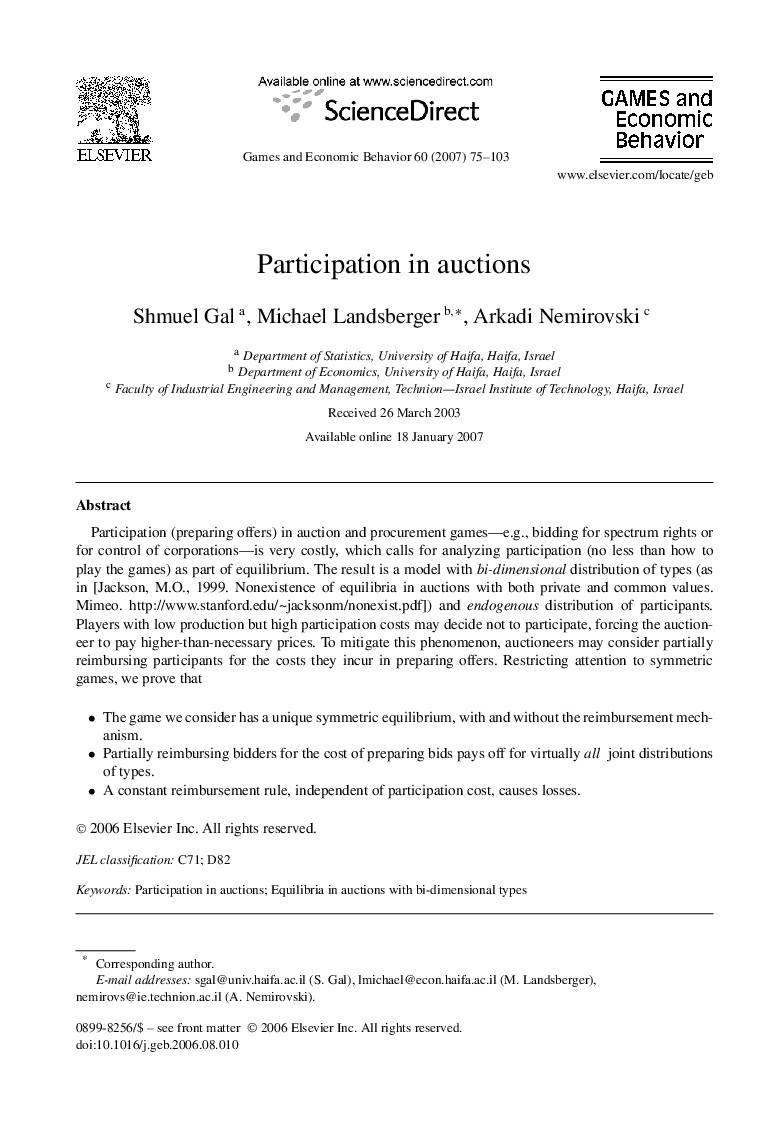| Article ID | Journal | Published Year | Pages | File Type |
|---|---|---|---|---|
| 5072995 | Games and Economic Behavior | 2007 | 29 Pages |
Participation (preparing offers) in auction and procurement games-e.g., bidding for spectrum rights or for control of corporations-is very costly, which calls for analyzing participation (no less than how to play the games) as part of equilibrium. The result is a model with bi-dimensional distribution of types (as in [Jackson, M.O., 1999. Nonexistence of equilibria in auctions with both private and common values. Mimeo. http://www.stanford.edu/~jacksonm/nonexist.pdf]) and endogenous distribution of participants. Players with low production but high participation costs may decide not to participate, forcing the auctioneer to pay higher-than-necessary prices. To mitigate this phenomenon, auctioneers may consider partially reimbursing participants for the costs they incur in preparing offers. Restricting attention to symmetric games, we prove thatâ¢The game we consider has a unique symmetric equilibrium, with and without the reimbursement mechanism.â¢Partially reimbursing bidders for the cost of preparing bids pays off for virtually all joint distributions of types.â¢A constant reimbursement rule, independent of participation cost, causes losses.
